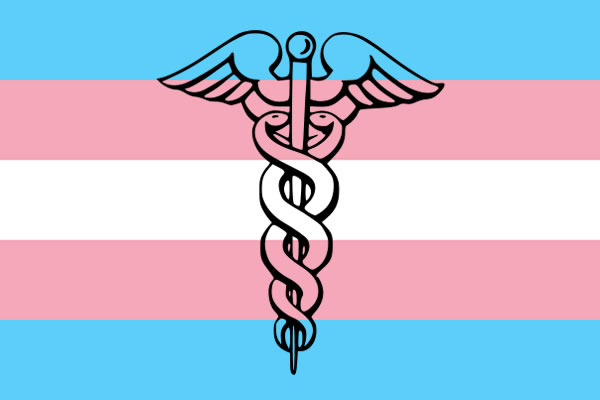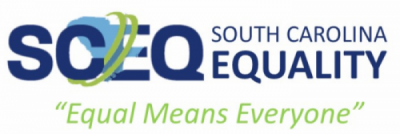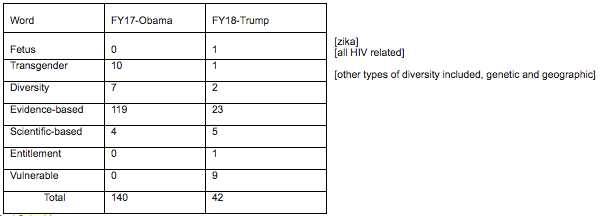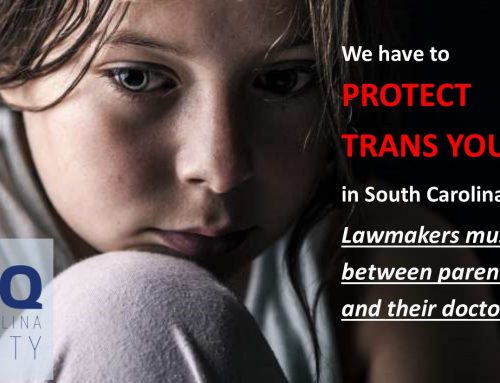December 18, 2017
By Chris Johnson
Washington Blade
A recent report in the Washington Post that the Centers for Disease Control is barred from using certain words like “fetus,” “diversity” and “transgender” in budget documents alarmed LGBT and HIV/AIDS health experts, although the agency disputes the characterization of the story.
In an article published Friday, the Post quoted an anonymous analyst who took part in a meeting in Atlanta on Thursday as saying CDC was forbidden to use seven words in documents for the fiscal year 2018 budget request. Those words are “vulnerable,” “entitlement,” “diversity,” “transgender,” “fetus,” “evidence-based” and “science-based.”
The reported ban on those words ignited a firestorm among LGBT advocates in particular of the reported ban on the word “transgender.” The prohibition on the words “diversity,” “evidence-based” and “science-based” also caused concern because of the implications of those words for the LGBT community.
In the view of many LGBT advocates, the report reinforced the widely held belief the Trump administration is seeking to eliminate any mention of LGBT people from public life, which includes efforts this year to eliminate LGBT questions from federal surveys. HHS ended up reinstating a sexual orientation question to a federal health survey for older Americans, but kept out the gender identity question.
Daniel Bruner, senior director of policy for the D.C.-based Whitman-Walker Clinic, expressed uncertainty about the report on the basis the administration is sending mixed messages, but said “we’re very concerned.”
“The CDC is critical for HIV prevention and treatment issues and one of the most heavily affected or really devastated communities by HIV is transgender women, and there’s growing concern about how to address prevention needs in particular of transgender women and the realization that there needs to be a lot more research and a lot more funding going into that community,” Bruner said. “For the CDC to be told when you’re submitting budget documents, don’t talk about transgender people, or even use the term is potentially horrifying.”
Bruner pointed to the CDC’s own estimates on the impact of HIV on transgender women. The U.S. agency cites a 2013 National Institute for Health report that found an estimated 22 percent of transgender women have HIV.
The reported ban on the use of the word “diversity” is also concerning, Bruner said, because it would mark a reversal from the Obama administration when “there was kind of a growing realization of the federal government to put a lot more effort and a lot more research into health inequities that affect particular communities…like the LGBT community.”
Carl Schmid, deputy director of the AIDS Institute, said a major concern for HIV/AIDS policy advocates is the reported ban on use of “evidence-based” and “science-based” in budget documents.
“Everything that we do is evidence-based,” Schmid said. “We treat people for HIV, we test people for HIV. How frequently and the messages for sex-ed are all evidence-based. Why do we start treatment early? Why do we get people tested? It’s all evidence-based. And condoms. Everything that we do is scientific- and evidence-based.”
Asked what programs in particular would be imperiled if CDC was unable to use the reportedly banned words, Bruner said, “at this point we don’t know enough,” but cited programs that focus on HIV and transgender women as well as programs studying health inequities among LGBT people.
“Just as a general matter, when you have the administration telling one of its chief scientific agencies don’t use the words ‘evidence-based’ or ‘science-based,’ that would really be of great concern,” Bruner added.
Brenda Fitzgerald, director for the Centers for Disease Control, said in a statement “there are no banned, prohibited or forbidden words at the CDC — period.”
“I want to emphasize to anyone who may believe otherwise that we continue to encourage open dialogue about all of the important public health work we do,” Fitzgerald said. “CDC has a longstanding history of making public health and budget decisions that are based on the best available science and data that benefits all Americans — and we will continue to do so.”
Fitzgerald added “confusion” arose from a staff-level discussion at a routine meeting about how to present CDC’s budget, which she said “was never intended as overall guidance for how we describe and conduct CDC’s work.”
Based on conversations he had with Trump administration officials, Schmid said he thinks the seven words might not be banned, but the CDC has guidance in place not to use them.
“I don’t think these words are banned,” Schmid said. “I think people are saying that could be a mischaracterization. I think it was guidance and suggestions, and I think people took it too far, but I think it’s good that the story got out there and there’s a reason why people are acting this way because there has been some editing of documents.”
An analysis by the AIDS Institute found a distinct difference in word usage in budget documents in FY-17, the final budget request for the Obama administration, and FY-18, an early budget request of the Trump years.
The word “transgender” came up 10 times in Obama-era documents, but only once in the Trump era. Additionally, the word “diversity” came up seven times in Obama documents, but only two times in Trump documents. The phrase “evidence-based” came up 119 times in the Obama documents, but only 23 times in the Trump documents.
“Nothing has impacted the programs,” Schmid said. “They’re still doing transgender prevention programs. That has not changed.”
What’s the reasoning for the guidance against certain words in budget documents? Schmid cited speculation they were edited out to appease a Republican-controlled Congress.
Schmid said he was cautious about that reasoning because he doesn’t understand why Republicans would object to “evidence-based” and “science-based” terminology or resist HIV funding for transgender people because they’re the most in need of treatment.
“It comes back to the whole sex ed controversy and the whole abstinence only until marriage,” Schmid said. “That seems to be an area where the debate over science-based and evidence has been up in the air, debated. It’s not that we debate it, but the politicos debate it.”
Schmid also said “part of the issue” might be social conservatives Trump appointed to administer HHS. Among them is Roger Severino, a former Heritage Foundation scholar who once criticized transgender healthcare, but is now in charge of defending it as director of the Office of Civil Rights.
The White House referred a request for comment to the Department of Health & Human Services, which didn’t respond. The Office of Management & Budget, which prepares budget documents, didn’t respond to a request to comment on whether there was any administration-wide guidance on banned words.
Sarah Kate Ellis, CEO of the LGBT media watchdog GLAAD, said in a statement OMB should follow suit and deny the report to make clear banned words aren’t part of an administration-wide policy.
“The Office of Management & Budget owes this country full transparency about their alleged promotion of dangerous censorship that harkens back to the days that HIV and AIDS research and funding were restricted with deadly effects,” Ellis said. “We cannot and will not allow hateful ideology, bigotry and personal bias determine the health can wellness of the transgender community – which has been serially targeted for erasure under the Trump administration.”







